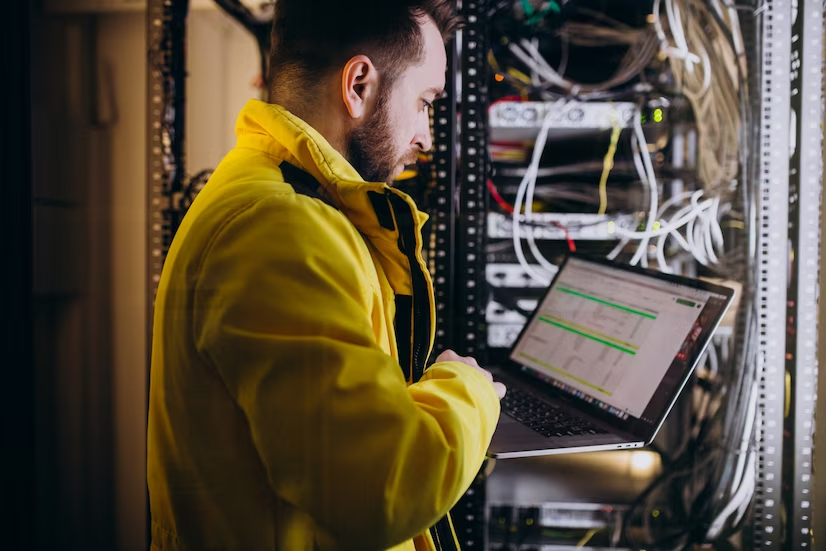SAP Business One | Decoding the Mysteries of How Servers Work

Servers are essential to modern technology, facilitating data transfer and communication between devices across the internet. A server is a computer program or device that runs access to a centralized resource or service on a network. This resource can be anything from a website, an application, or a database. The importance of servers in modern technology cannot be overstated, as they serve as the backbone of the internet and are crucial to the smooth functioning of numerous industries. In this blog post, we will decode the mysteries of how servers work, exploring the hardware and software components involved and the types of servers commonly used. By the end of this article, readers will better understand the critical role servers play in modern technology and how they facilitate the seamless transfer of data between devices across the globe.
What is a Server?
A server is a computer program or device that provides centralized access to a resource or service on a computer network. Essentially, a server manages data transfer and communication between devices across the internet. Servers come in different types, including file servers, web servers, mail servers, and application servers. File servers store and manage files, while web servers host websites and serve web pages to users. Mail servers manage the transfer of email messages between users, while application servers host and manage applications used in business environments. The primary function of servers is to provide access to resources or services shared among multiple users or devices, making them essential components of computer networks.
How Do Servers Work?
Servers facilitate client-server communication, where a client device requests data or services from a server, and the server responds by providing the requested data or service. Ordering and receiving data from a server involves several steps, including establishing a connection, sending a request, processing the request, and sending a response. IP addresses, domain names, and ports play a crucial role in server communication, as they help identify the specific server and the requested service type. For example, IP addresses identify the location of a server, domain names provide a human-readable name for the server, and ports specify the type of service requested. Understanding how servers work is essential in today’s technology-driven world, as it enables us to make the most of the various services and resources available on the internet.
What Hardware is Involved in Servers?
Servers have specific hardware requirements to handle the demands of serving multiple clients simultaneously. The primary hardware components of a server include a processor, memory, storage, and a network interface card (NIC). The processor is responsible for processing client requests and executing server software, while memory stores frequently accessed data and software. Storage, in the form of hard drives or solid-state drives, allows the server to store data and software. Finally, the network interface card facilitates communication between the server and other devices on the network. These hardware components work together to process client requests and serve data by performing complex operations in a coordinated manner. Understanding the role of each hardware component in server performance can help users optimize their server hardware and improve its performance.
What Software is Used in Servers?
Servers rely on various software components to enable them to provide services to clients. The operating system is a critical software component that manages hardware resources and provides a server software environment. Standard operating systems used in servers include Windows Server, Linux, and Unix. Server software also comprises web server software, which serves web pages and applications to clients. Popular web server software includes Apache, Nginx, and IIS. Database software is another crucial component of server software, enabling servers to store and manage large volumes of data. Examples of popular database software include MySQL, Oracle, and Microsoft SQL Server. Finally, server software plays a vital role in processing client requests and serving data by managing server resources and enabling the execution of server software. Understanding the role of server software in server performance can help users optimize their servers and improve their ability to provide services to clients.
Servers play a critical role in modern technology by facilitating client-server communication, processing requests, and serving data. They rely on hardware components such as processors, memory, storage, and network interface cards, as well as various software components such as operating systems, web server software, and database software. Understanding the different types of servers and their functions can help users choose the correct server for their needs and optimize their server’s performance for the intended use case. In today’s advanced world, it is essential to understand how servers work to make the most of the various services and resources available on the internet.
Things To Do In Cebu City, Philippines
Cebu City, Philippines News
